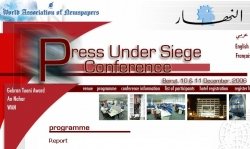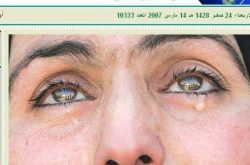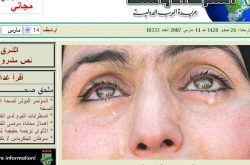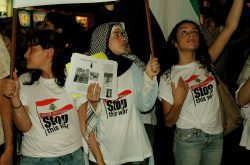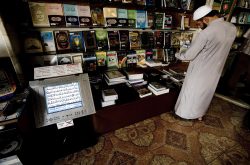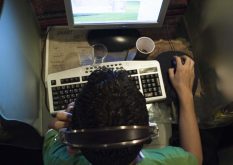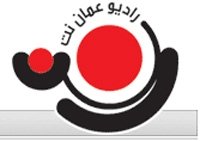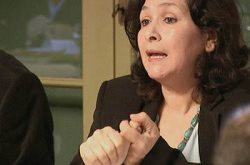It was not clear whether the ultimate point of the conference was to support Arab journalists in their struggle for protected freedoms, or to promote Siniora’s government?then under heavy fire?as democratic and free before a would-be sympathetic international audience, claims Abigail Hauslohner.
Read More »Censorship: What you didn’t see
Do Arab newspapers say one thing in Arabic and another in English? Egyptian journalist Mona Eltahawy thinks so. She was a columnist for the Saudi-owned pan-Arab daily Asharq Alawsat until she was abruptly dropped last year. One reason may have been her complaints about how her articles were being edited for the Arabic edition. Here's your chance to read one of her original op-eds alongside the edited version.
Read More »Witness censorship in action: Read this edited copy and judge for yourself
Do Arab newspapers say one thing in Arabic and another in English? Egyptian journalist Mona Eltahawy thinks so. She was a columnist for the Saudi-owned pan-Arab daily Asharq Alawsat until she was abruptly dropped last year. One reason may have been her complaints about how her articles were being edited for the Arabic edition. We have here retranslated the edited Arabic version back into English. Be sure to compare it with the original, which we also publish.
Read More »From A-lists to webtifadas: Developments in the Lebanese blogosphere 2005-2006
During the Hizbullah-Israel War, blogs provided alternative on-the-ground accounts of events, says Sune Haugbolle. But can they challenge the social authority of old media?
Read More »Media and Religion in the Arab-Islamic World
In this edited version of the 11th Templeton Lecture on Religion and World Affairs, Abdallah Schleifer looks at the development of journalism in the Arab-Islamic World, attempting to explain factors shaping journalism practice in the region.
Read More »Blogging the new Arab public
Marc Lynch traces the political impact of blogging in the Middle East arguing that Arab blogs have begun to exert real leverage meriting serious attention.
Read More »“Huge need for independent media” in Middle East: AmmanNet founder Daoud Kuttab
There are few media professionals in the Middle East who juggle as many commitments as Daoud Kuttab. Director of the Institute of Modern Media at Al Quds University, he is also a regular columnist for the Jordan Times and Jerusalem Post. But perhaps his greatest achievement is as founder and chief of the Arab World’s first online community radio station AmmanNet. So what has online radio achieved in Jordan? And where can it go from here? Co-Editor and Publisher of Arab Media & Society finds out.
Read More »‘I Hope One Day I may Publish Freely’: Tunisian journalist Sihem Bensedrine
All the journalists working with Kalima have been persecuted in their family life, in their job and so on. Every member of our team has faced a great many violations of their rights, reveals Sihem Bensedrine in conversation with Co-Editor Lawrence Pintak.
Read More »2007: A Fateful Year for America’s Voices?
There are several reasons why the new Democratic 110th Congress, the Bush administration, or both need to take a hard, new look at the American networks without delay, says Alan L. Heil Jr.
Read More »The weaponization of news media in the Middle East
We are hardly ever innocent bystanders to conflict. Merely with their presence journalists influence the parties they report on, so we are participants rather than bystanders. And our choice of what to report and how always serves certain power interests, argues Dutch journalist Joris Luyendijk.
Read More » Arab Media & Society The Arab Media Hub
Arab Media & Society The Arab Media Hub
